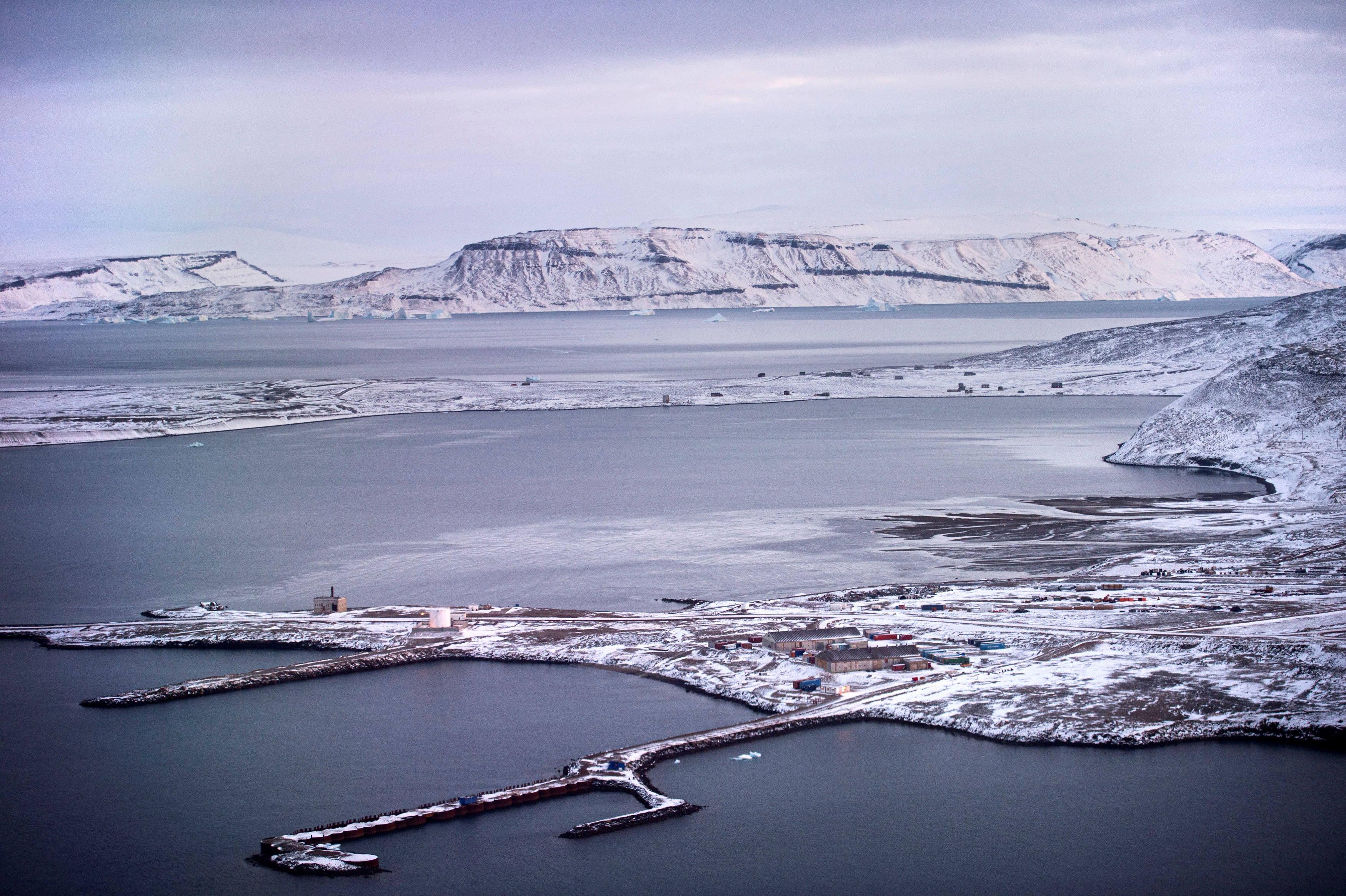Greenland welcomes US aid, but some lawmakers fear it could bring entanglements
A $12.1 million aid U.S. package is receiving a mixed reception in Greenland and Denmark.

Details of a $12.1 million American aid package to Greenland, announced on Thursday, remain scarce, but the money will be directed toward programs in education, energy, tourism and sustainable development.
The education component appeared to be a key part of the deal, linking together other elements of the package, according to a U.S. State Department briefing Thursday.
“We hope to have a university education capacity-building program that will focus on the sectors of tourism and hospitality development and sustainable land and fisheries management,” a senior State Department official said during the briefing. “Much of Greenland’s current prosperity is based in land use and fisheries management, and they’re looking to the future in developing their tourism industry.”
The deal comes as the U.S. seeks to counter interest in Greenland from China, and to strengthen its strategic foothold on the island to balance Russia’s military presence in the Arctic.
Funding for tourism programs in particular was explicitly framed by the State Department as a diplomatic move to counter China, which described potential investment in tourism infrastructure as “the hook or the wedge issue that the Chinese used” to secure a foothold in Greenland.
At least some of the aid for energy and natural resources comes in the form of assistance in mapping Greenland’s mineral resources, a plan first agreed to last summer and announced in the fall.
While Greenland’s self-rule government welcomed the announcement of the aid package, opposition politicians in both Greenland and Denmark criticized elements of the package.
The agreement is unusual because it is being described as a deal made directly between Nuuk and Washington.
A Danish opposition parliamentarian told Reuters that the deal was intended “create division between Greenland and Denmark.”
Meanwhile in Greenland, the largest opposition party, IA, withheld its support for the deal, saying it should have been deliberated publicly before it was accepted.
The failure to do so circumvented the democratic process, IA leader Múte B. Egede said.
“We need to agree on decisions of this sort,” said Egede.
[U.S. extends economic aid to Greenland in a bid to counter China, Russia in Arctic]
Egede accepted that dealings with foreign countries in policy areas that have been devolved to Nuuk are the remit of Naalakkersuisut, the elected government. However, he found it “unacceptable” that, prior to the announcement yesterday, the first public mention of the deal was in an April 20 post on the website of the U.S. embassy in Copenhagen that called for expanded U.S. involvement in Greenland in order to provide the country with a bulwark against unwanted Russian and Chinese influence there.
The national assembly’s foreign policy committee was informed of the imminent deal Thursday morning, but that, according to IA, afforded no opportunity for objection.
Egede worried that the lack of deliberation about the deal meant Naalakkersuisut could unwittingly be walking the country into a relationship that “benefited the U.S. more.”
“We need to remember that America’s interest in our country stems from its self-interests, not our best interests.”
[The US State Department is now hiring for a Greenland consulate]
Washington has previously pressured Denmark to halt agreements between Greenland and China that it felt could pose a threat to U.S. security interests, and representatives from other parties expressed concern that accepting aid opened the door to wider American influence over Greenlandic decision-making.
Kim Kielsen, Greenland’s premier, sought to allay fears of undue influence by describing the deal as part of an emerging collaborative relationship with the U.S., and that Naalakkersuisut would have a say in how the money is spent.
Other members of his party said they were aware the aid was a way for America to protect its own interests, but argued they weren’t necessarily incompatible with Greenland’s interests.
“Regardless of which country you deal with, you need to be careful. You always need to be critical,” Aki Mathilde Høegh-Dam, a member of the Danish national assembly representing Greenland, told KNR, a broadcaster.